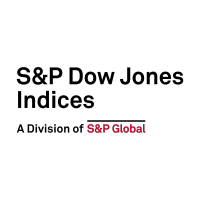Tag Archives: alpha
Exploring Fixed Income’s Passive Potential
Passive investing has historically been more associated with equities than with fixed income, but recent data indicates a change could be in the winds. S&P DJI’s Tim Edwards and Anu Ganti take a closer look at what’s driving the shift and what a passive transformation could mean for fixed income markets.
- Categories Fixed Income
- Other Tags
Alpha, Omicron: Why?
Over the past week, global financial markets have been roiled by the discovery of the “Omicron” COVID-19 mutation. It’s far too soon to know how much this new variant will impact the world’s economy—but its discovery suggests an interesting thought experiment in, of all things, corporate governance. The experiment is this: suppose Omicron turns out…
- Categories Equities, S&P 500 & DJIA
- Other Tags
The Distribution of Alpha
Investment management is a zero sum game. The source of outperformance for a market’s outperformers is the underperformance of the same market’s underperformers. Properly measured, the weighted average sum of the winners’ gains is exactly equal (before costs) to the weighted average sum of the losers’ losses. This identity, along with the professionalization of the…
- Categories Equities, S&P 500 & DJIA
- Other Tags
- Categories
- Equities, S&P 500 & DJIA
- Other Tags
Outcome-Oriented Solutions: Where Active and Passive Meet
What do presidential debates and an argument between passive and active investors have in common? They are both thrilling, demand the highest levels of rhetorical skills, don’t change audience opinions, and everyone goes home entertained. While presidential debates remain as exciting as ever, the shrillness of conversation between active and passive investors seems to have…
- Categories Equities
- Other Tags
Do Dividends Really Pay? (Part 2)
Previously I discussed why preference for dividend-paying stocks may not have a strong theoretical footing, but could be grounded in behavioral and practical reasons. Furthermore, due to possible economic signaling generated by dividends, such strategies may be correlated with widely accepted factors like quality and value. This post demonstrates how specific dividend strategy indices may…
- Other Tags
The Worst of Both Worlds
For active managers, investment results are partly a function of skill and partly a function of the environment in which that skill is exercised. Even perfect foresight has only conditional value. Imagine, for example, a manager who can always identify the top quintile of performers in a given market. If the top quintile outperforms the index as…
The Shrinking Supply of Alpha
Recently we attended a conference at which many hedge fund representatives were present. Not surprisingly, there was much discussion of the ability of hedge funds, and by extension active managers generally, to generate alpha. This raises an obvious question: what is the market’s capacity to produce alpha? Is there a natural limit to investors’ ability…
- Categories Equities, S&P 500 & DJIA
- Other Tags
- Categories
- Equities, S&P 500 & DJIA
- Other Tags
Good Calls and Bad Calls of Covered Calls
Generally investors use covered calls to earn extra income from investments they think might not have much upside potential. For example, if a CEO has a very large stock holding in his or her company but doubts the stock price will increase (or decrease much), writing (selling) options on the stock to collect a premium…
- Categories Commodities, Strategy, Uncategorized
- Other Tags
- Categories
- Commodities, Strategy, Uncategorized
- Other Tags






